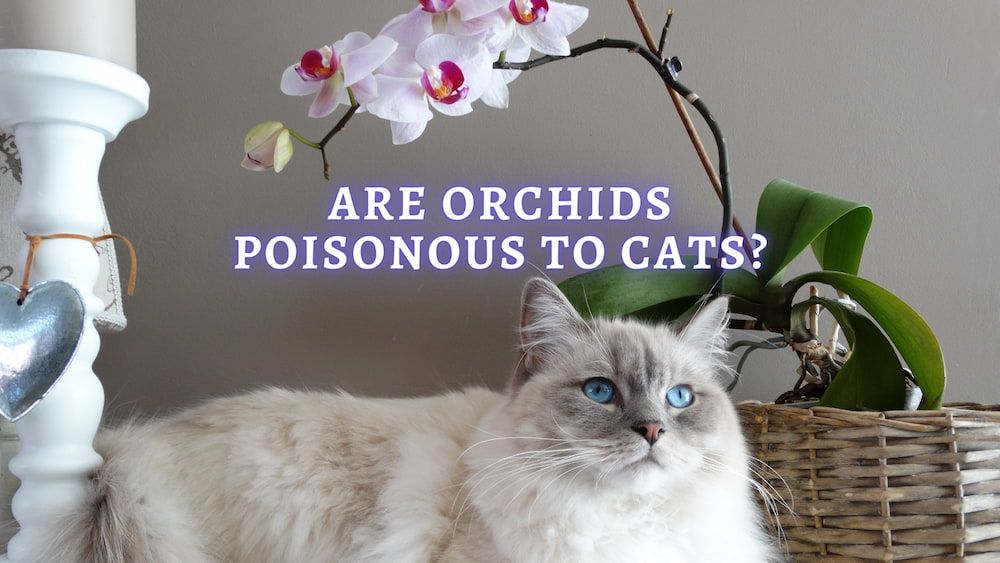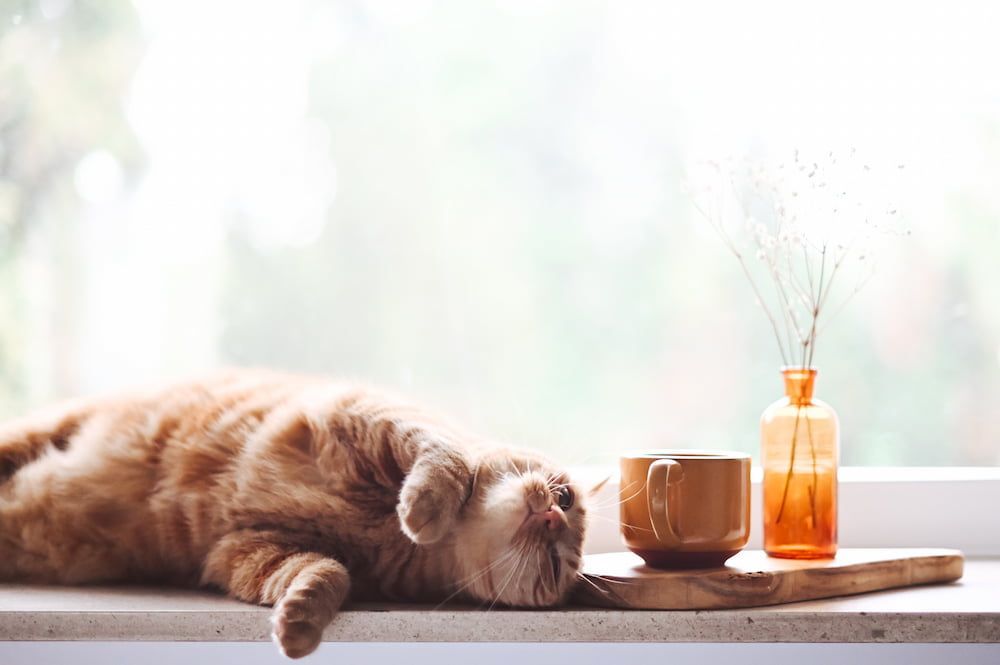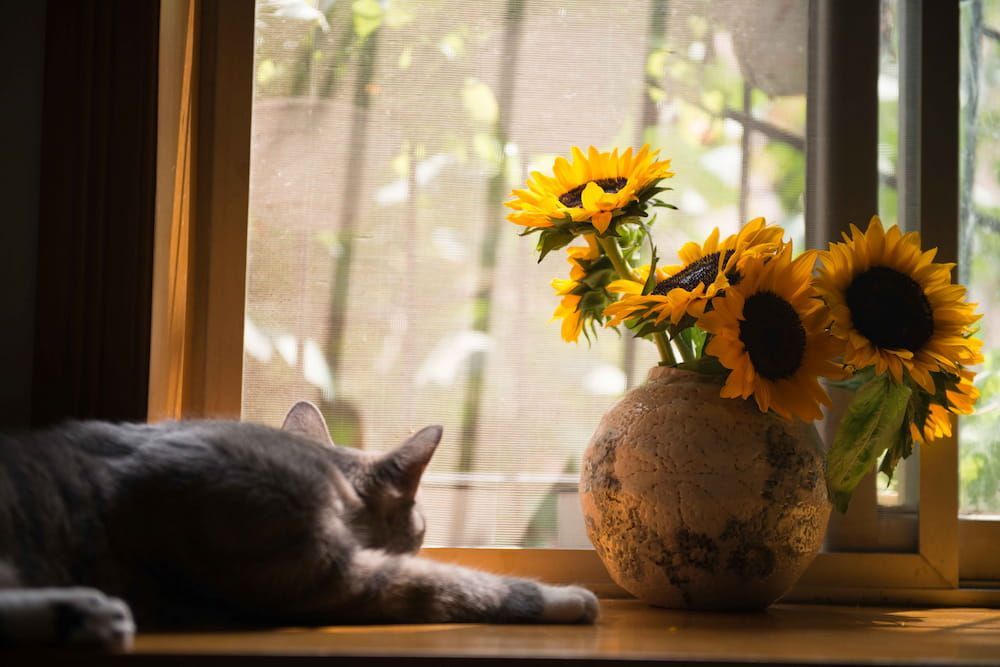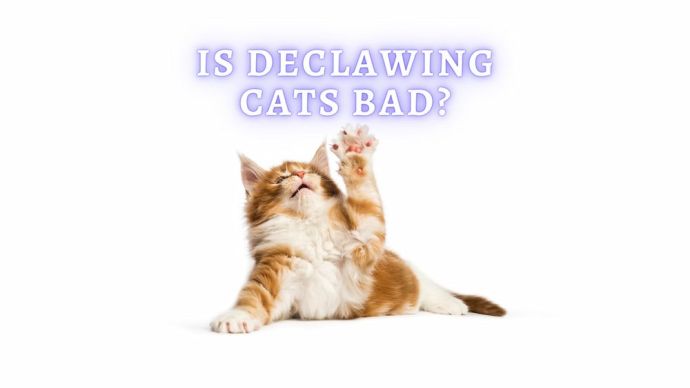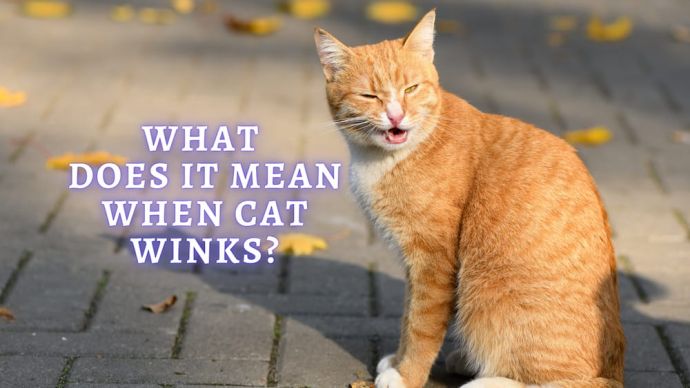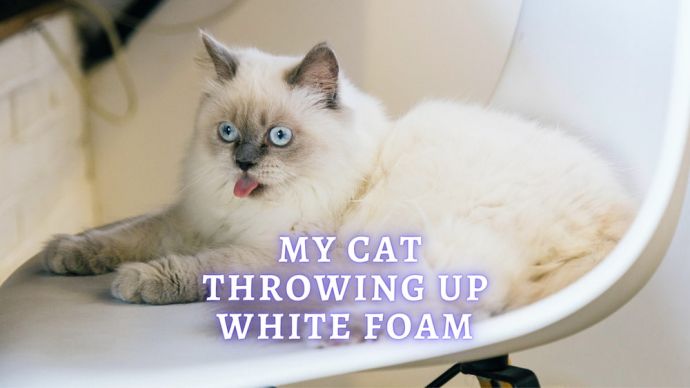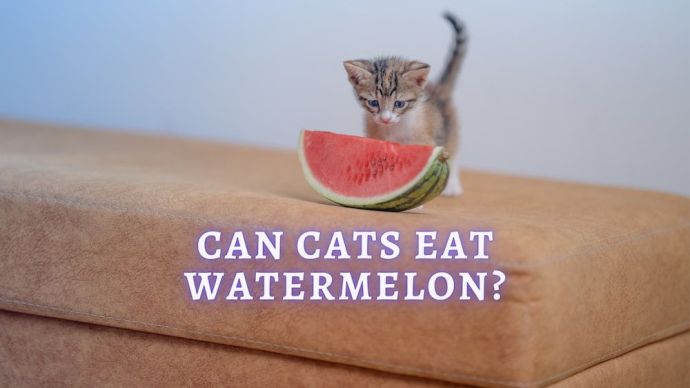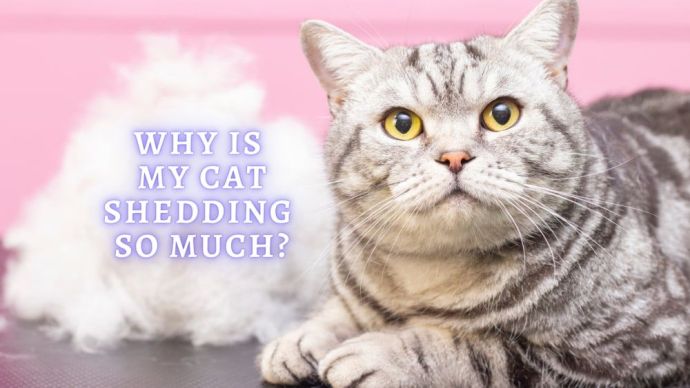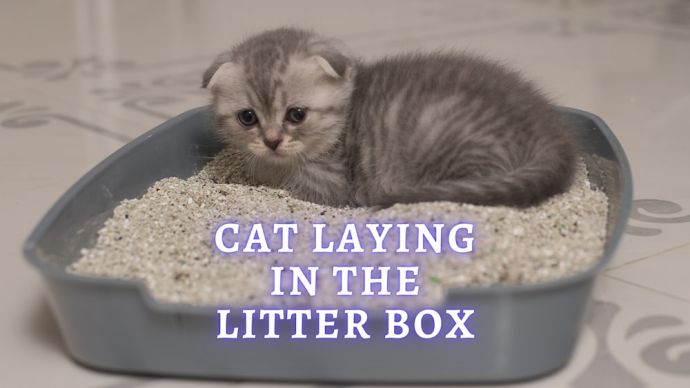Are Orchids Poisonous to Cats? What Happens If a Cat Eats an Orchid?
Written by:
Author: Vicki Smirnova
Vicki Smirnova is a professional writer and editor who adores animals and helps readers get along well with their pets. She has been working in digital media for more than 5 years and has great experience writing content about lifestyle, including pets. Vicki specializes in dog health and nutrition, cat feeding, dog training. She is an aquarium lover and is passionate to write about fish care at home. Also, Vicki headed several websites and worked as a news editor.
View all 244 articlesLearn about our editorial process and veterinary review board.
Reviewed by:
Veterinary review
by Dr. Chyrle Bonk
Dr. Chyrle Bonk is an associate veterinarian since 2010 and was a volunteer for Clearwater County Youth 4H. Dr. Bonk contributed to various animal and veterinary related websites and magazines as a way to help keep animals across the globe safe and healthy. When Chyrle not working she spends her time with her own furry crew of dogs, cats, and horses.
View all 10 articlesLearn about our veterinary review board
Viewed: 217
Updated on: 10/21/2021
Many cat owners complain that their pets eat indoor plants. A cat’s grazing habits can turn into a severe problem to their health. Many indoor plants can be a danger to pets. Some cause discomfort, while others may lead to diarrhea, vomiting, abdominal pain, a severe allergic reaction, severe salivation, or blistering in the mouth and swelling of the larynx, leading to suffocation. And not all indoor plants cause a quick reaction; some dangerous elements contained in plants can have a cumulative effect and cause the animal to feel unwell after some time.
The toxic effect on an animal depends on the type of plant and which part of the plant was eaten. For example, the bulbs of daffodils often cause poisoning, but the leaves and flowers (which are the prey of pets) are less offensive. For safety reasons, it is better to remove daffodils and lilies from the house, since they are the most common cause of poisoning of pets.
Your cat doesn’t always have to swallow the plant to get poisoned. Some flowers have a poisonous juice, which is released at the moment when the animal begins to chew it. This juice causes the formation of blisters in the oral cavity. In some cases, the toxic effects on the animal’s body can be serious and require the help of a veterinary specialist.
Thus, you need to choose plants that are not toxic to pets. Many pet owners are unaware of the toxicity of some plants. If you have a question about the plants in your home, speak to your veterinarian or consult a poison control center such as the ASPCA’s. [1] Statistics show that plants occupy 9th place in the top 10 toxins. [2]
Why cats eat the leaves of houseplants?
Cats may be attracted to houseplants for many reasons. The first reason pets eat the leaves of houseplants is lack of fresh drinking water. Cats may try to get water from the leaves to quench their thirst. Therefore, your pet must always have free access to clean drinking water.
Another reason for eating leaves is the lack of toys or the owner’s attention.
Boredom can be a strong drive for a cat to sample plants or flowers in the house.
Dr. Chyrle Bonk
Thus, providing your pet with a sufficient number of toys and plenty of attention can prevent it from eating plant leaves.
Still, another reason for eating leaves is that young pets are simply exploring or curious about what they are.
Cats can also climb on large indoor plants. This is due to natural instincts. In the wild, cats climb trees to get to a higher point to observe what is happening around them. In the process of climbing, cats can gnaw or bite the leaves of trees.
RELATED ARTICLE: How to Keep Cats out of Plants?
Are orchids safe to cats?
Orchids are beautiful; you can collect different varieties, colors and hybrids of these colorful plants. The most common orchid for growing at home is the phalaenopsis orchid. Fortunately, this little beauty is not toxic to pets.
Only those varieties of orchids that have been artificially bred are considered absolutely safe for a pet’s home and its outdoor surroundings. At the same time, purebred orchids that have been brought in from their natural habitat can cause problems with the pet’s health.
Even though orchids are considered non-toxic to cats, you need to prevent your pet from chewing them. This is because your orchids could have been treated with a pesticide. In addition, most foreign substances that enter the cat’s body, including plant substances, usually cause stomach upset.
What plants are toxic to cats?
The list of dangerous plants for pets includes exotic flowers and potted greens, which we are used to seeing in almost every home. The result of exposure to the pet’s body is immediately noticeable and may manifest as vomiting, diarrhea, weakness, loss of appetite, and other symptoms. Certain plants act more slowly; at first, the owner may not observe any external signs of poisoning, but toxins gradually accumulate in the body and can manifest themselves in a few weeks – or even months.
Protect your pet from these toxic plants:
- Daylilies.
- Tulips.
- Hyacinth.
- Mistletoe, holly, amaryllis, poinsettia, Christmas tree varieties.
- Daffodils.
- Rhododendron.
- Oleander.
- Sago palm – especially the seeds.
- Philodendron.
- Jade.
- Some ivy.
- Pothos.
- Cayenne pepper.
Plants that are non-toxic to cats:
- Beaucarnea recurvata.
- Asplenium nidus.
- Tillandsia.
- Impatiens.
- Calathea orbifolia.
- Peperomia clusiifolia.
- Calathea lancifolia.
- Calathea makoyana.
- Platycerium bifurcatum.
- Hibiscus rosa-sinensis, Hibiscus syriacus.
- Nephrolepis exaltata.
- Guzmania lingulata.
What to do if your cat ate a leaf?
If you see that your cat is trying to eat certain harmful flowers, you need to react immediately; even non-toxic flowers in your house cause stomach upset in cats.
If your cat ate the plant’s leaves, first you need to watch out for signs such as:
- inflammation of the oral mucosa;
- salivation;
- malaise;
- vomiting;
- diarrhea.
At the first manifestation of one of these symptoms, it is recommended to immediately contact a veterinarian. [1]
How to keep cats from eating plants?
Before purchasing a plant, determine whether or not the plant is toxic for a cat. If you have a toxic indoor flower, make sure that your pet can’t get to it or remove the plant from your home.
Cats dislike the smell of citrus, sprinkling citrus oils or peels in the pot with a flower may help keep your cat away from it. You can also mix citrus juice with water and spray the plants with the prepared composition; just squeeze a few slices into the water and mix.
If your cat is trying to chew or climb larger plants, then you can wrap the trunk with foil. This will keep your cat from biting the plant and prevent possible negative consequences.
If the cat is trying to dig up the roots of the plant and gnaw at them, you can put stones or other materials on top of the soil in the pot. You can also try hanging the plant or placing it on a high shelf that is out of reach.
Fortunately, for most animals, poisonous flowers will be unattractive or uninteresting. For example, cyclamen are often included in such lists, but only the root of the plant is toxic for pets. So, most cats will not be attracted to the plant because it requires them to dig through the soil to the roots. It is necessary to find out which plants are dangerous for cats before you buy them. Do not forget that flowers dangerous to cats can get into the house in a bouquet. [3]
FAQs
What happens if a cat eats an orchid?
There are both toxic and non-toxic types of orchids; however, even the non-toxic species are not good for cats because their digestive system is not adapted to processing plant foods. If your pet has eaten an orchid, it is recommended to immediately contact a veterinarian and tell them the type of orchid. It is also necessary to monitor your cat for any symptoms such as excessive salivation, vomiting and diarrhea. If one of the symptoms appears, you should immediately contact a veterinarian.
Are orchids safe to have around cats?
Yes, under certain conditions. To be perfectly safe, you should keep all orchids away from your cat. A separate room is perfect for this as it can be locked in your absence. You can also use hanging pots for indoor plants that your cat can not get to.
Can orchid plants hurt cats?
Any plant, including orchids, can harm your pet. It all depends on the type of the orchid and the amount eaten. In any case, if you have witnessed your cat eating an orchid, it is necessary to observe the animal. If symptoms of poisoning are detected, you should immediately contact a veterinarian.
What flowers are not safe for cats?
No indoor flower should be considered perfectly safe for cats. That being said, there are some that are more toxic than others. Even if a plant is considered non-toxic, it can still cause digestive issues, like vomiting, diarrhea, and abdominal pain. Flowers that are considered toxic can cause all of these symptoms plus salivation, seizures, tremors, kidney failure, and dehydration.
Dr. Chyrle Bonk
Article Sources:
- “Toxic and Non-Toxic Plants.” ASPCA, aspca.org/pet-care/animal-poison-control/toxic-and-non-toxic-plants.
- Shultz, David. “Mystery Solved? Why Cats Eat Grass.” Science, AAAS, 8 Aug. 2019, sciencemag.org/news/2019/08/mystery-solved-why-cats-eat-grass.
- “Tea Tree Oil – Toxic to Cats.” Messy Beast, messybeast.com/teatree.htm.
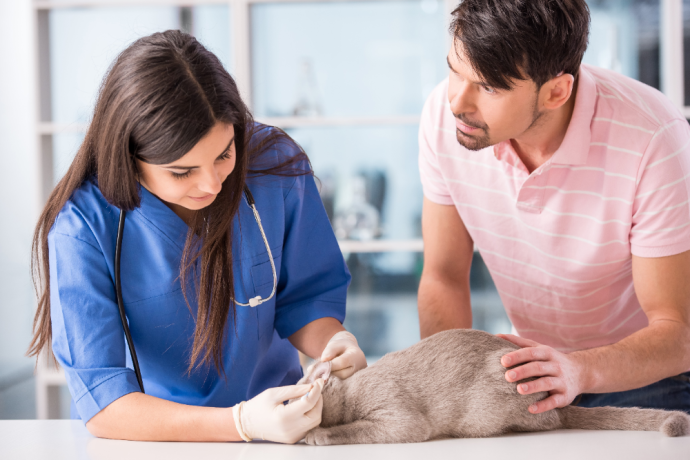 Cat Veterinary Tips Cat Fleas and Ticks: How to get rid of Fleas on Cats? (Vet Advice)
Cat Veterinary Tips Cat Fleas and Ticks: How to get rid of Fleas on Cats? (Vet Advice) - 185
- 0
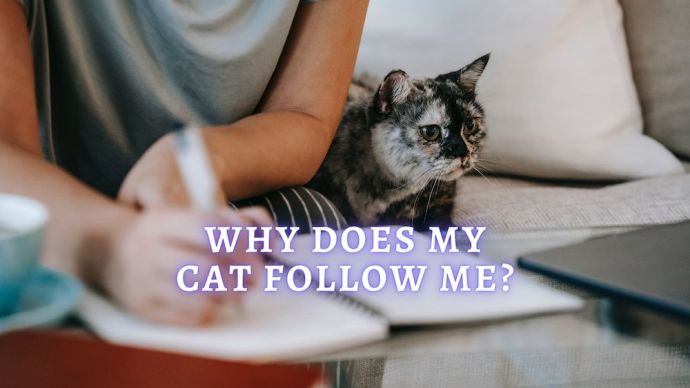 Cat Care Why Does My Cat Follow Me? Reasons Why Your Cat’s Following You Everywhere
Cat Care Why Does My Cat Follow Me? Reasons Why Your Cat’s Following You Everywhere - 208
- 0
 Cat Care Why Does My Cat Attack My Legs? 10 Reasons Why and What To Do About It (Vet-Approved Advice)
Cat Care Why Does My Cat Attack My Legs? 10 Reasons Why and What To Do About It (Vet-Approved Advice) - 46013
- 21
 Cat Veterinary Tips Cat Stomach Gurgling: Vet Advice on Why is Your Cat Stomach Gurgling?
Cat Veterinary Tips Cat Stomach Gurgling: Vet Advice on Why is Your Cat Stomach Gurgling? - 36469
- 4
 Cat Veterinary Tips My Cat Lost its Voice: Can Cats get Laryngitis? (Vet Advice)
Cat Veterinary Tips My Cat Lost its Voice: Can Cats get Laryngitis? (Vet Advice) - 23554
- 13









